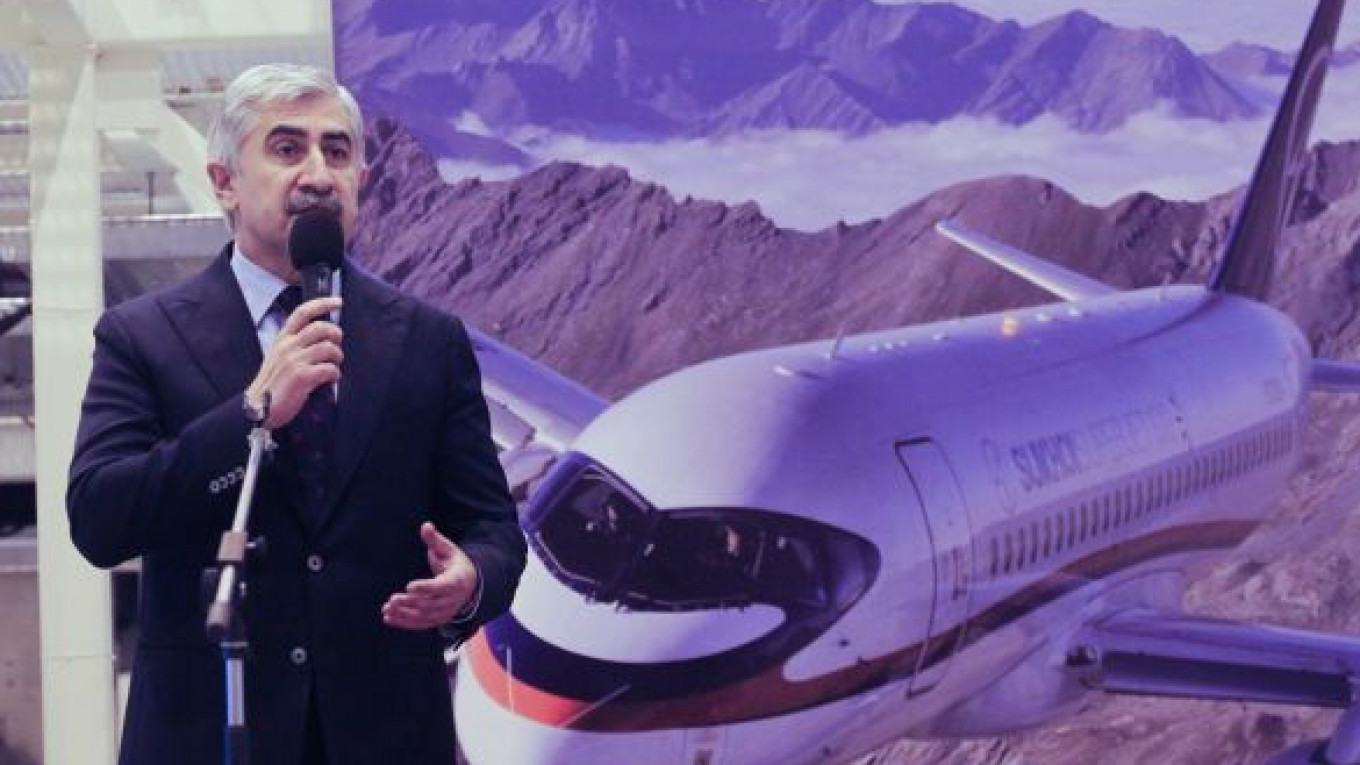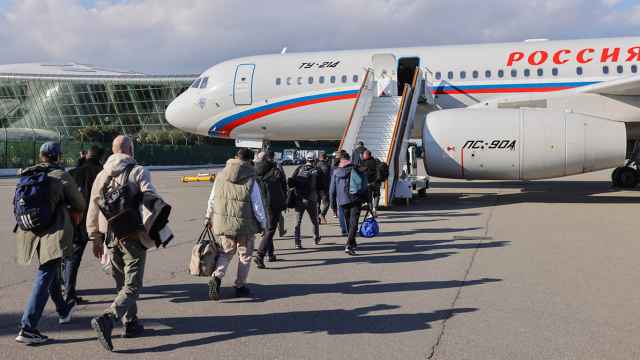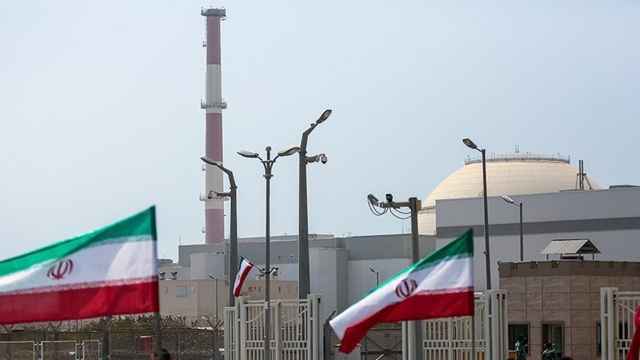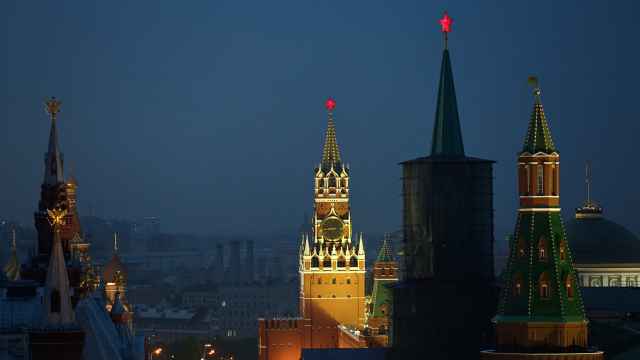The maker of the SuperJet regional aircraft, which has few orders but soaring debts, may face default by the end of the year if help does not come from state-owned banks, a news report said Thursday.
Sukhoi Civil Aviation, which manufactures the SuperJet-100 passenger jet, has amassed over $2 billion worth of debt and has already violated some loan-related commitments to EBRD, WestLB and VTB, Kommersant said.
"The problem should be resolved by year's end, otherwise Sukhoi Civil Aviation will default on its loans," a source familiar with the situation was quoted as saying.
Holding company United Aircraft Corporation, VEB and several ministries are discussing ways to prop up the debt-laden company. In particular, Sukhoi Civil Aviation's debt to VEB in excess of $600 million may be repaid with stock of the subsidiary, or parent company Sukhoi Corporation.
The latter option would be preferable for VEB since Sukhoi Corporation is a more diverse and profitable company than its subsidiary, Kommersant said.
To settle debts to other creditors Sukhoi Civil Aviation could issue bonds worth from $600 million to $1 billion, guaranteed by the state. At the same time, the company is asking that money planned as part of a federal program to create a new cargo plane be redirected to the SuperJet project, which may bring up to 10.7 billion rubles ($325 million).
Other rescue measures currently under consideration may include selling 15 billion rubles worth of VEB's stake in Airbus's manufacturer EADS to fund the SuperJet project. Currently, VEB owns a 5-percent stake in EADS worth 68.6 billion rubles in yesterday's prices.
It took over a decade and up to $2 billion to take SuperJet from the drawing board to commercial operation. It raised hopes that a long-awaited renaissance of the civilian aircraft industry would happen.
In August 2011, at the MAKS international aerospace show in Moscow, preliminary orders were placed for as many as 100 SuperJet planes. But since then the company has more problems than paying customers.
Armenian airline Armavia, the first to order a SuperJet, last year gave back its only craft and called off the purchase of the second vehicle.
Aeroflot, which so far possesses the largest SuperJet fleet, repeatedly complained of technical problems. It said in February that 4 out of its 10 planes could not be used due to mechanical deficiencies. The issue was later resolved and all planes are currently in service.
Indonesian Kartika Airlines, which in 2010 signed a contract for 30 SuperJet planes totaling $900 million, is on the verge of bankruptcy, and the contract may be called off.
Mexican airline Interjet signed a contract to supply 20 planes last year and then announced an option to buy another 10, but so far only one plane has been delivered.
In an attempt to drum up more SuperJet orders, Prime Minister Dmitry Medvedev said at a VEB supervisory board meeting last October that the bank should provide credits of up to $2.5 billion to foreign companies wanting to buy the planes.
Although the government is making every possible effort to rescue SuperJet and there are currently 179 confirmed contracts, experts are pessimistic of the plane's future.
"SuperJet took too long to complete; there are now other offers on the market. Besides, its seat capacity is less than needed for the regional segment," said Konstantin Makiyenko, deputy head of the Center for Analysis of Strategies and Technologies.
While SuperJet is struggling with its "childhood infirmities," domestic as well as foreign airlines are replacing their stock with what other manufacturers offer. Major Russian airlines prefer Airbus and Boeing.
"And it will be very difficult to make them change their mind in favor of SuperJet or another Russian maker," Makiyenko said.
In Europe, a popular regional plane is Brazil's Embraer 190, which is SuperJet's direct competitor. In 2010, Embraer won a tender to supply 20 planes for Alitalia because SuperJet failed to deliver the first planes on time.
Meanwhile, there is another hope for the country's civilian aircraft industry. The MS-21 mid-range plane is to be developed by Russia's Irkut by 2020, but experts said chances are it may face similar difficulties to the SuperJet.
"If both SuperJet and MS-21 planes do not meet expectations, then what would be left for Russia it just local assembly of some future foreign aircraft," Makiyenko said.
Contact the author at [email protected]
A Message from The Moscow Times:
Dear readers,
We are facing unprecedented challenges. Russia's Prosecutor General's Office has designated The Moscow Times as an "undesirable" organization, criminalizing our work and putting our staff at risk of prosecution. This follows our earlier unjust labeling as a "foreign agent."
These actions are direct attempts to silence independent journalism in Russia. The authorities claim our work "discredits the decisions of the Russian leadership." We see things differently: we strive to provide accurate, unbiased reporting on Russia.
We, the journalists of The Moscow Times, refuse to be silenced. But to continue our work, we need your help.
Your support, no matter how small, makes a world of difference. If you can, please support us monthly starting from just $2. It's quick to set up, and every contribution makes a significant impact.
By supporting The Moscow Times, you're defending open, independent journalism in the face of repression. Thank you for standing with us.
Remind me later.






